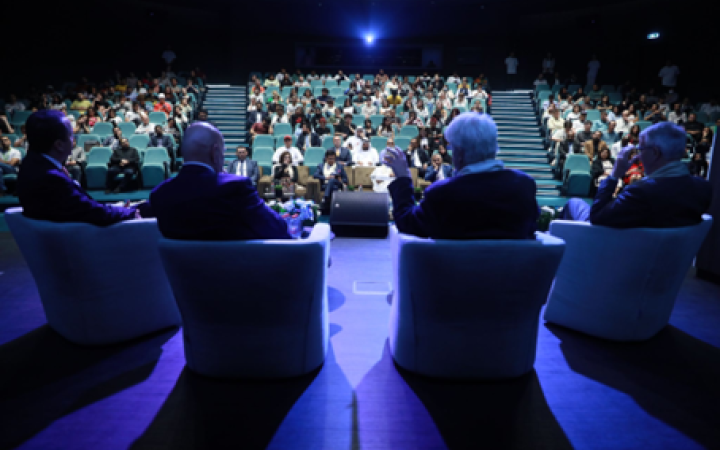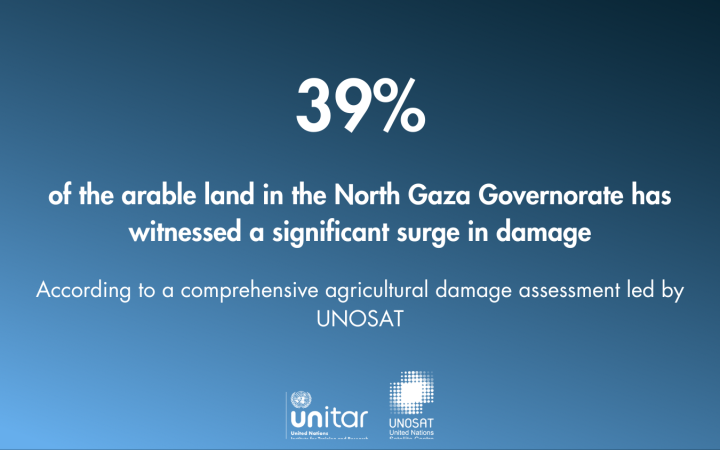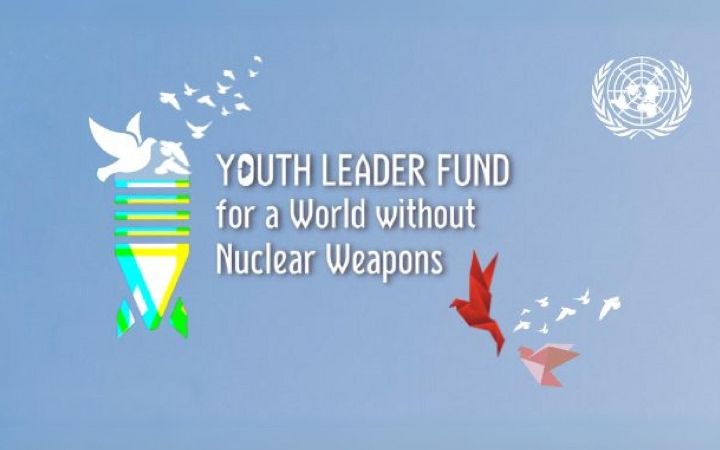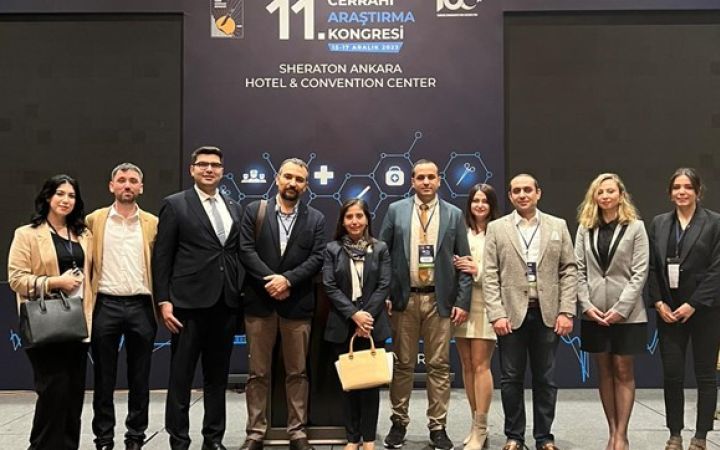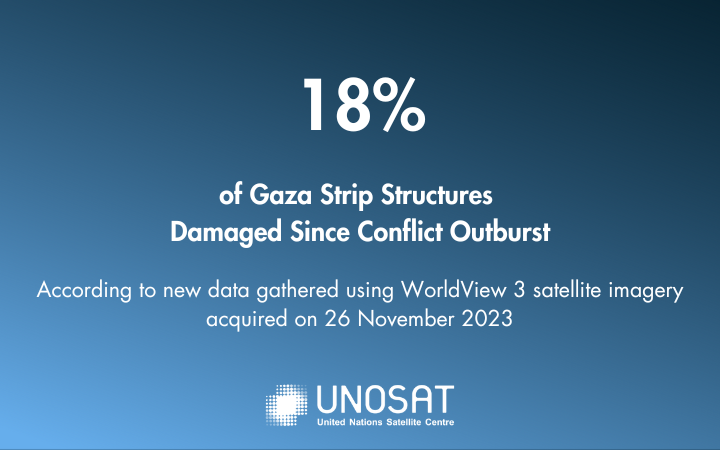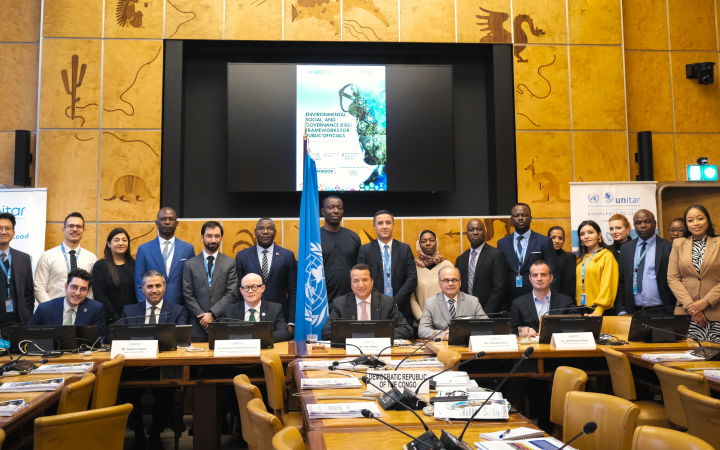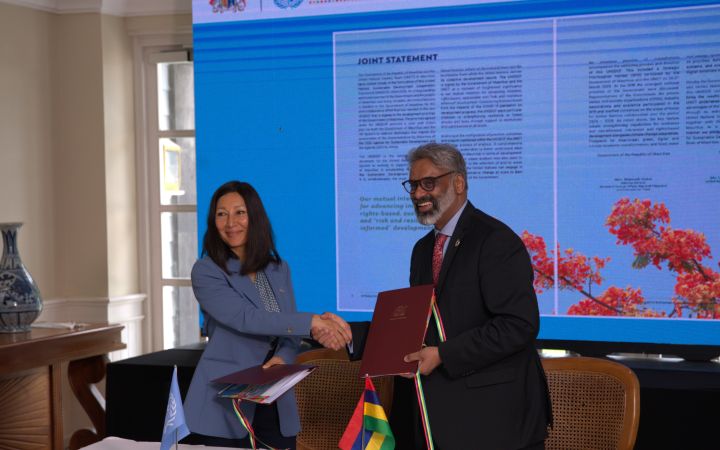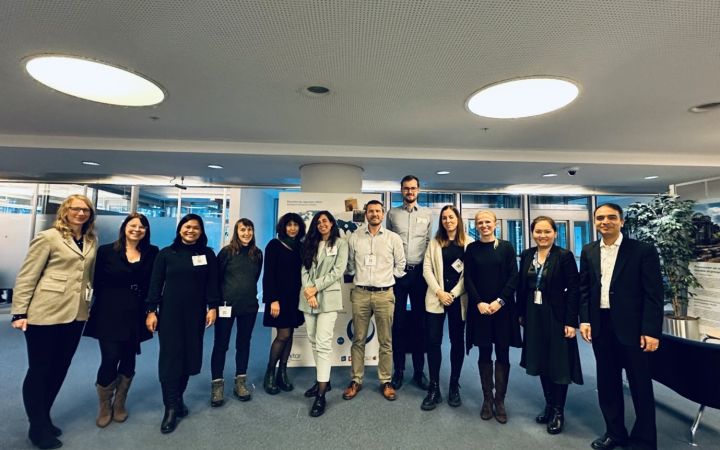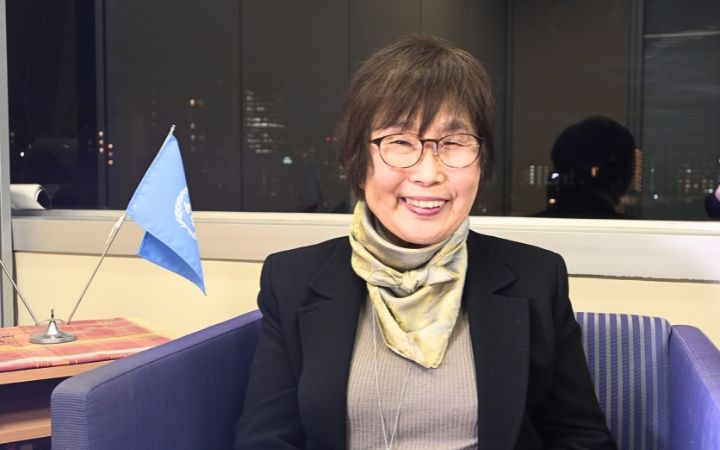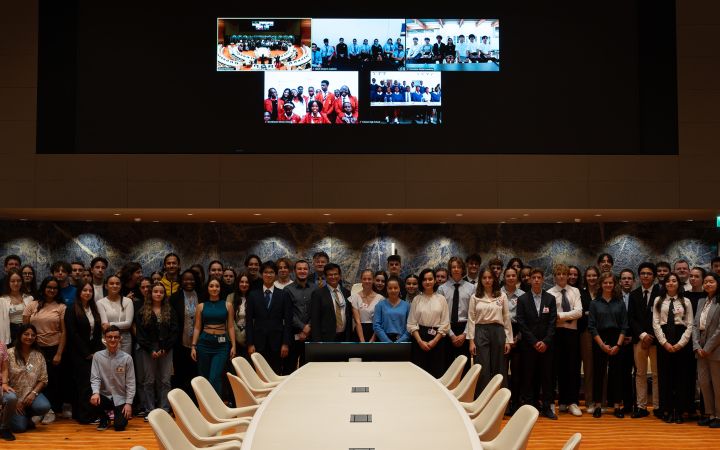Displaying 541 - 550 of 1549
21 December 2023, Online/Dubai, UAE - From the 4th to the 10th December, UNITAR hosted three events at COP28 for UN CC Learn’s Climate Classrooms, entitled; Tackling Plastic Pollution; Sustainable Marine Transportation; Upskilling for Decarbonization, and two in-person events at COP28, first with CIFAL City of London on December 5th entitled ‘Sustainable Development and Higher Education’, and second with RES4City at the ‘United in Science 2023’ event on December 10th.
18 December 2023, Geneva, Switzerland - New satellite imagery analysis conducted by the United Nations Satellite Center (UNOSAT) has uncovered distressing trends in the agricultural landscape of the Gaza Strip. Based on an assessment utilizing Sentinel-2 satellite imagery collected between December 2017 and December 2023, the findings illuminate the significant impact of the ongoing conflict on the health and density of crops.
18 December 2023, New York, USA – Today, the selected 100 young participants of the Youth Leader Fund for a World without Nuclear Weapons (YLF) convened for the first time.
17 December 2023, Ankara, Türkiye - the United Nations Institute for Training and Research (UNITAR), in collaboration with the Global Surgery Foundation (GSF), signed a shared Vision Statement with members of the Value-Based Healthcare (VBHC) Expert Working Group in Türkiye.
12 December 2023, Geneva, Switzerland - Eighteen per cent of structures in the Gaza Strip have been damaged since the outburst of the conflict. This figure comes from a new satellite imagery analysis conducted by the United Nations Satellite Center (UNOSAT) based on an image collected on 26 November 2023 with the very-high resolution WorldView-3 satellite. Additionally, there has been a staggering 49% increase in total structures affected since the last assessment on 7 November 2023.
12 December 2023, Geneva, Switzerland – UNITAR successfully concluded a four-day training on Environmental, Social, and Governance Frameworks for Public Officials at the Palais des Nations, bringing together 23 participants from 18 member-states of the Group of 77 and China (G77 + China). The workshop consisted of eight interactive sessions, led by world-class experts, including Ambassadors, university professors and senior UN officials, all working to equip participants with the skills and knowledge necessary to impact ESG integration and sustainable development.
UNITAR has joined the UN Country Team of Mauritius and Seychelles, marking a significant milestone in its partnership with the countries. The signing ceremonies for the United Nations Sustainable Development Cooperation Framework (UNSDCF) were held on November 6 and October 24, 2023, for Mauritius and Seychelles, respectively.
Reaching the mid-point of the 2030 Agenda, the newly established Cooperation Framework outlines the collaborative response of the United Nations. This strategic initiative is designed to lend support to Seychelles and Mauritius, addressing their national priorities and paving the way for a more inclusive, resilient, and sustainable future. The framework is centered around the key themes of People, Planet, and Prosperity, and is dedicated to ensuring that No One is Left Behind in the collective pursuit of achieving the SDGs.
Reaching the mid-point of the 2030 Agenda, the newly established Cooperation Framework outlines the collaborative response of the United Nations. This strategic initiative is designed to lend support to Seychelles and Mauritius, addressing their national priorities and paving the way for a more inclusive, resilient, and sustainable future. The framework is centered around the key themes of People, Planet, and Prosperity, and is dedicated to ensuring that No One is Left Behind in the collective pursuit of achieving the SDGs.
8 December 2023, Geneva, Switzerland - To celebrate a milestone of the partnership and to strategize the way forward, UN SDG:Learn partners gathered for a Retreat “Transforming Sustainable Development Learning on the way to the Summit of the Future”.
7 December 2023, Hiroshima, Japan – In May 2023, the G7 Summit was held in Hiroshima, Japan, putting the global spotlight on one of UNITAR’s host cities. Ms. Keiko Ogura, a hibakusha (atomic bombing survivor), who has been an invaluable contributor to UNITAR Hiroshima Office’s training programmes, reflected on her meetings with the G7 leaders at the Summit.
6 October 2023, Geneva, Switzerland - Climate change is a global issue that requires targeted, adaptable, and tailored solutions. A solution that works well in one country, may not necessarily work as well in another country or region. This was evident at the recent Youth Climate Dialogue which brought together high school students from six countries as part of UNITAR’s 60th Anniversary celebrations.
Read on to find out more about the rich and engaging discussions about climate change that took place at Palais des Nations with students from six different countries.
Read on to find out more about the rich and engaging discussions about climate change that took place at Palais des Nations with students from six different countries.


